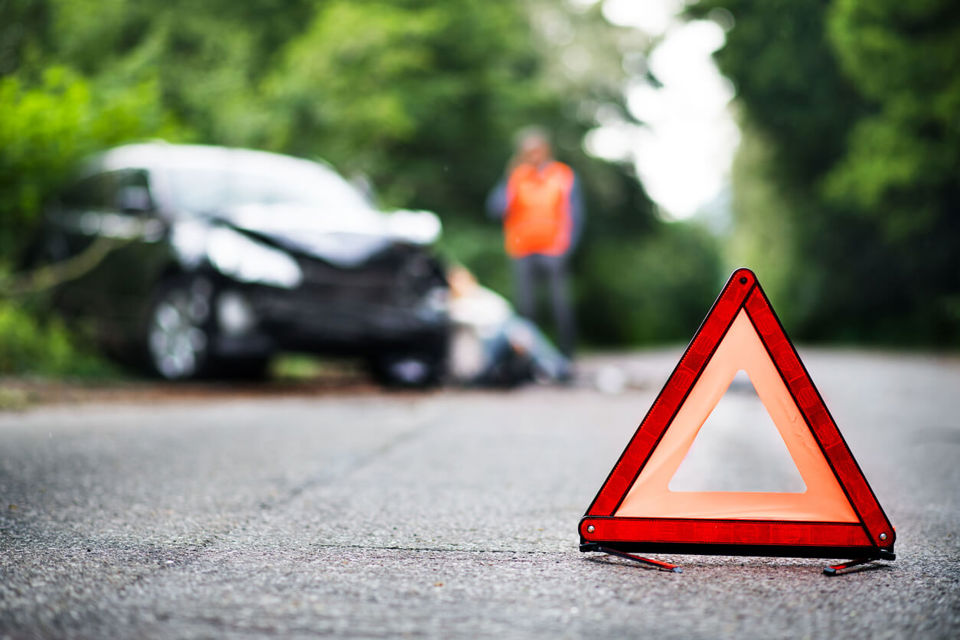There were 1,711 fatalities on Britain’s roads in 2022, an increase of 10% on the 1,558 killed the previous year, new accident data from the Department for Transport (DfT) shows.
Some 29,742 people were killed or seriously injured (KSI) and 135,480 casualties of all severities.
New DfT data around e-scooters also shows a rise in fatalities, with 1,402 collisions involving e-scooters, compared to 1,352 in 2021.
There were 12 deaths in collisions involving e-scooters, 11 of whom were e-scooter riders, compared to 10 in 2021.
DfT says its best estimate, after adjusting for changes in reporting by police, is that there were 440 seriously injured and 1,040 slightly injured in collisions involving e-scooters, this compares to 418 and 1,006 respectively in 2021.
Martin Usher, partner in personal injury at Lime Solicitors, said: "The rise in the number of those killed in e-scooter accidents is extremely concerning, and we need urgent action to drive these numbers down.
“Despite their obvious popularity, we still lack comprehensive legislation for e-scooter use."
He added: "While rental scooters have speed caps and are covered by insurance, we know that private e-scooters are being used illegally on public highways with little to no resistance.
"The Government cannot continue to ignore the new reality on our roads and delay responding to the changing landscape of metropolitan transport.
“More needs to be done in terms of legislation, investment and public awareness campaigns to adapt to these new forms of transport and improve road safety.
"E-transport is cheap and sustainable, but the ongoing failure to act is leaving people vulnerable to serious but avoidable injuries.”
While car occupants accounted for the majority of road casualties in 2022, the highest casualty rates per billion miles travelled were for motorcyclists, indicating that a person is more likely to be injured on the road when travelling by motorcycle.
Edmund King, director of the AA Charitable Trust, said; “Every death on our roads is a tragedy and it is worrying that after the pandemic, road deaths are rising.”
The majority of road fatalities occurred on rural roads, whereas the majority of all casualties occurred on urban roads.
Although motorways account for 21% of road traffic, they account for a much smaller proportion of road fatalities (6%) and casualties (4%). By contrast, rural road fatalities (59%) are over represented compared to the proportion of rural road traffic (44%).
Similarly, urban roads account for a much higher proportion of road casualties (63%) than their relative traffic level (35%).
The DfT figures also highlight that, where a fatality occurred, around a fifth of all car occupants were not wearing seatbelts, but this proportion was higher for male car occupant fatalities and occupants travelling in the evening and night (6pm to 8am).
King continued: “It is a preventable tragedy that a fifth of people who die in cars on our roads are not wearing a seatbelt.
“Seatbelts are arguably the greatest ever road safety invention but they are entirely useless if they are not worn.
“Although on the face of it this year’s results represent cause for some celebration, having dropped from 30% in the previous year, the figure for fatalities not wearing a seatbelt has remained stubbornly around a fifth for numerous years.
“There needs to be concerted and targeted education to reach those drivers who choose to risk their lives for the sake of a two second action.”
Worryingly, the DfT data also reveals that the number of deceased drivers with ‘impairment drugs’ present has increased by over 60% from 2014 to 2021, while those where alcohol has been detected has barely changed.
The drug driving increase could reflect changes to testing, and add further years data as it becomes available, said the DfT.
“The number of people killed or seriously injured due to the driver of a vehicle being under the influence of drugs reached a record high of 1,023,” said King.
“We need an increase in police drug drive testing at the roadside so that those tempted to do so will think again.
“It’s on all of us to eliminate deaths and casualties on our roads. As well as having more cops in cars to catch people in the act, road users need to take responsibility when heading out on the roads.”
RAC road safety spokesperson Rod Dennis added: “Confirmation that last year saw a rise in the number of casualties on our roads – and that men are so much more likely to be involved – is a chilling reminder that there remains so much work to do be done to improve road safety in the UK, even if statistically we have some of the safest roads in Europe.
"The data shows there were more fatal collisions last year than at any point over the last decade caused by drivers or riders being distracted, impaired (458 lives lost) or breaking the speed limit (303 lives lost).
“It’s time the Government turned the dial up on tackling these issues which, while complex, result in hundreds of people losing their lives every year. We also continue to urge the Government to treat this issue with the upmost seriousness by reintroducing casualty reduction targets which were scrapped in 2010.”






















weegie247 - 28/09/2023 12:52
Whilst deaths caused by e-scooters is inevitable and tragic, it’s still an incredibly small fraction in comparison to deaths caused by any other road vehicle. You are absolutely correct in saying we need legislation as a matter of urgency but I’m now convinced that the government have intentionally put the brakes on private ownership, despite new rental schemes being renewed or popping up which claim to be part of “trials”. Every other country has adapted to e-scooter and micro-mobility devices by either introducing legislation which allows their use or outright bans them. I’m honestly incredibly surprised that we’re still no closer to anything sensible given that we’ve seen through a pandemic and living costs crisis.